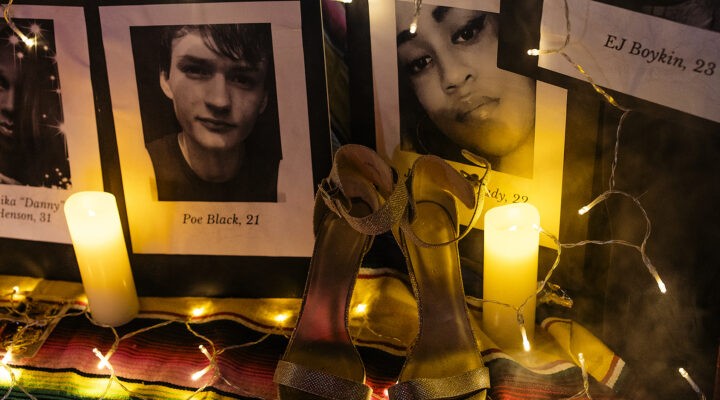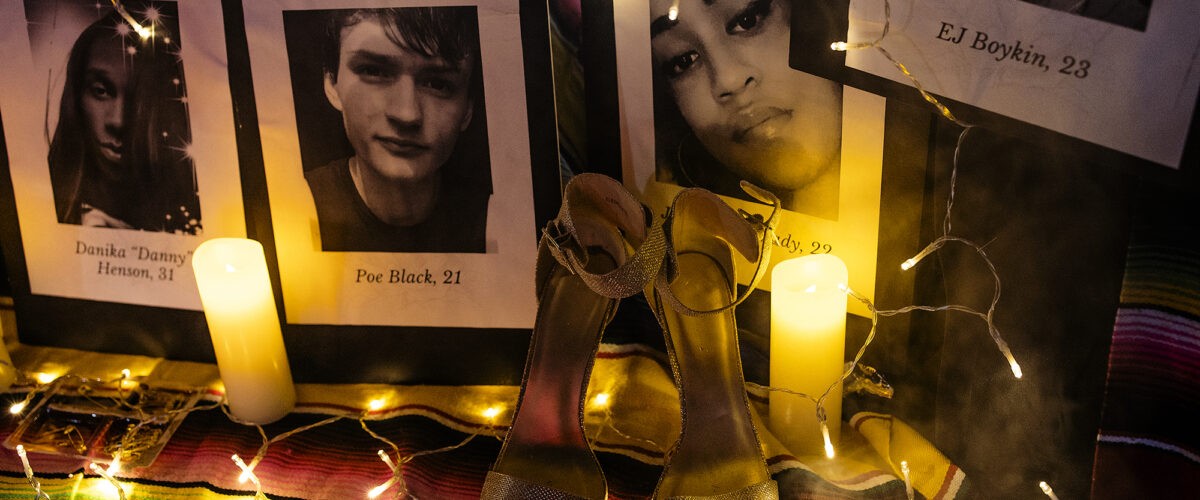Faith leaders and their communities have a crucial role to play in ending the discrimination and persecution of LGBTQ people around the world, a panel of international activists and clergy said ahead of President Joe Biden’s Dec. 9 Summit for Democracy.
But participants added that religious communities also are a major contributor to the worsening dehumanization and mistreatment of gays, lesbians, bisexuals and transgender people.
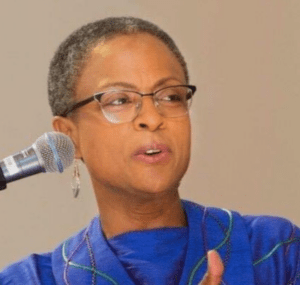
Yvette Flunder
“Religion is a liberator and a violator of human rights. Religion has done beautiful work to serve humanity and has been a harbinger of oppression” for women, people of color and LGBTQ persons, said Yvette Flunder, bishop of the Fellowship of Affirming Ministries and founder of City of Refuge United Church of Christ in San Francisco.
“No human being is born with the destiny to be oppressed or to oppress others. Too many people are exercising their gifts and skills in an effort to be the one at the center of religious power,” Flunder said during an online discussion presented Dec. 7 by Columbia University’s Union Theological Seminary in New York City.
Organizers said the event was intended to demonstrate that healthy democracies must include deliberate, overt efforts to improve and protect the rights of LGBTQ people, a message timed to precede Biden’s upcoming global democracy summit.
“The ministry of Jesus and the ministry of those who are known to be the bringers of the kingdom of God cannot hide and do work on the down-low.”
Panelists and other participants also emphasized the need for people of faith to take leadership in their communities and nations to end discrimination based on sexual and gender identity.
“We need more people who will put their faces and their lives into this work,” Flunder said. “The ministry of Jesus and the ministry of those who are known to be the bringers of the kingdom of God cannot hide and do work on the down-low.”
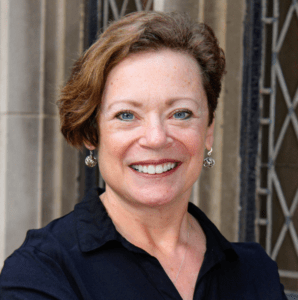
Pamela Cooper-White
Faith-based action is needed to prevent white Christian nationalists from eroding the fragile gains for LGBTQ rights, said Pamela Cooper-White, vice-president of academic affairs and dean at Union.
“We need not cede our theology to the Christian right. We need progressive Christian voices front and center as we raise up these issues and collaborate on a vision that promotes equality and dignity,” Cooper-White said.
But the hard reality is that many Christian traditions operate from warped interpretations of Scripture to justify the mistreatment of gays, lesbians and transgender persons that often results in shame, isolation and even death, said panelist Steve Chalke, a British Baptist pastor and founder of the Oasis Charitable Trust.
Chalke shared about a friend who recently “drank himself to death” after years of isolation and loneliness from being shunned by his religious parents for coming out as gay.
“Bad theology costs lives. Bad theology speaks a curse over people.”
“Bad theology costs lives. Bad theology speaks a curse over people. My friend … is just the latest friend I’ve lost to oppressive, immature theology,” Chalke said.
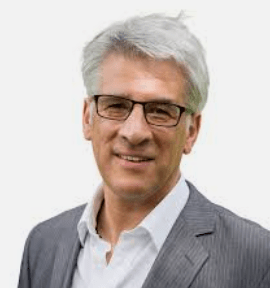
Steve Chalke
Physicians in England have identified religion as a key obstacle to eliminating the spread of HIV/AIDS because people of faith are among the hardest to reach, he added. “The role of the religious teacher overwhelms the voice of the medical professional. We have to do something about that.”
Chalke suggested a campaign of relearning how to read and interpret the Bible so that more LGBTQ persons do not fall into depression or death.
“This is what bad theology does: It destroys lives. It humiliates people. It marginalizes people,” he said. “As people of faith, we have to acknowledge that our texts can be read violently or peacefully, and we must get that right.”
Panelists who joined the discussion from Africa illustrated the dangers of anti-LGBTQ theologies.
Religion has become a force as dangerous as the government for gay, lesbian, bisexual and transgender people in Kenya where gay sex is illegal, said Essy Adhiambo of the Initiative for Equality and Non-Discrimination.
Many faith leaders and institutions in Kenya are feared because they have become aligned with political personalities in promoting the use of conversion therapies and deepening the social stigma of LGBTQ people, she said. Students who identify as gay are kicked out of schools and their identities are broadcast on television.
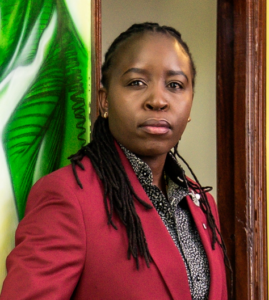
Essy Adhiambo
Making it even more hostile is strong monetary and moral support for anti-gay efforts from Christian conservatives in the United States, Adhiambo said.
From Uganda, Julius Kaggwa said Christian leaders have become synonymous with government power and have helped pass “brutal legislation” oppressing gay, lesbian, transgender and trans-sexual people.
“Most faith leaders are now also political leaders” who have a “strong influence over culture and law,” said Kaggwa, executive director of the Support Initiative for People with Atypical Sex Development.
Arrests of LGBTQ people are on the rise, as is the practice of shunning by employers, family and friends. And about 50 human rights organizations in Uganda have had their licenses suspended, he said. “The state is actually guided and informed by faith leaders, and their power is destructive and immense.”
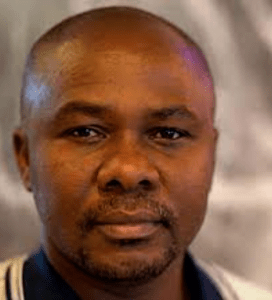
Julius Kaggwa
Religious leaders who have sided with gays and lesbians have been “excommunicated and branded,” Kaggwa added.
As in Kenya and Uganda and other parts of Africa, efforts to marginalize same-sex relations are fueled in part by belief that the practice is alien to their cultures, said panelist L. Ramakrishnan, vice president of Solidarity and Action Against the HIV Infection in India.
Within Hinduism, transgender persons are seen more positively because Hindu mythologies contain references to transgender deities, he said. But being gay is viewed with disdain by many.
“Being gay is seen as a Western import. The claim is that homosexuality is un-Indian.”
Yet there have been positive developments. The Church of South India recently opened space in different locations for prayer support groups for the LGBTQ community, while other groups have shown greater tolerance for people with different sexual orientations and gender identities, Ramakrishnan said.
Moderator Frederick A. Davie, adviser to the president of the seminary, said the discussion and the planned series of subsequent gatherings in 2022 are vital to creating inclusive societies that support LGBTQ people “whose lives are on the line.”
Related articles:
Research documents how fundamentalists view LGBTQ inclusion as a zero-sum game they are losing
My journey toward LGBTQ inclusion: God still speaks | Opinion by Chris Conley
My quest to find the word ‘homosexual’ in the Bible | Opinion by Ed Oxford

